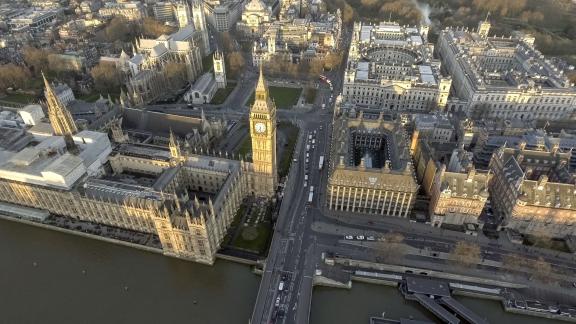The challenge is on

The pressure is growing for all health and care services to return to normal. With unprecedented winter stresses added to the mix, James Devine writes that health and care leaders need to work together to address the issues that could become system failure points.
The last week or two have certainly highlighted the many challenges that winter brings to health and care services across the UK. This year will perhaps be unlike any other, as health and care colleagues look to manage the usual demands of winter, exacerbated by rising COVID-19 cases, increasing demand for primary, social and emergency care, elective and diagnostic backlog, vaccine roll out and workforce shortages.
NHS leaders are not immune to dealing with such pressures, but with growing public expectation and frustration, now isn’t the time for any of those competing demands to be pushed down the priority list. Patients will rightly want their outpatient or elective care to proceed as planned; they will want to access primary and emergency care without delay; and will want to be discharged safely and quickly – unsurprisingly these too are things that NHS leaders want – but how realistic is it that the NHS can meet the expectation of the public, but also regulators? The challenge is most certainly on.
In July 2021, NHS Confederation brought system leaders together to discuss the challenges, but also set out what needed to happen to ensure that we were ready and well prepared for the challenge of winter 2021. Two of the ten areas of focus in particular need a true system approach to the problem, and both rely on the most precious asset – workforce.
The challenges
This isn’t a time for us to take our respective corners and allow any one part of the system to become the system point of failure or blame each other
The issues in social care are resulting in care home beds being empty, because of staff shortages. In turn, this is resulting in patients spending longer than necessary in hospital awaiting discharge. This isn’t a time for us to take our respective corners and allow any one part of the system to become the system point of failure or blame each other; instead, the challenge is for us to work together to address the system issues that pose a real risk to any one of the priorities becoming the failure point. How effective are system workforce plans in addressing this type of scenario and what consideration is given to a view that simply paying a tired workforce more money in the short term isn’t going to be the answer this winter?
On elective care, we hear from members about some fantastic initiatives to step up virtual outpatient activity, and ring fence theatre capacity – but with these competing demands, how long can theatre capacity be ringfenced for elective patients when emergency demand during winter increases, and the flow of patients is compromised due to staffing shortages in other parts of the patients’ journey? In one hospital alone in August, 59 theatre sessions were cancelled due to staff shortages – with four patients per session, that’s 236 patients who had their long-awaited surgery cancelled.
Workforce demands
We could see a bidding war on workforce leading to tension, compromised safety and the deterioration of fragile relationships
Already we hear concern from members about higher rates of pay being offered across systems, which will only result in a bidding war between organisations, and a real lack of available staffing particularly in rural and coastal communities. There is widespread recognition that the NHS comes under immense pressure during the winter months, but this is not just any winter. This is a winter like no other, and we need to make sure it brings out the best, not the worst, of system leadership. Strong system leadership will see mobilisation of the workforce (regardless of the limitations in existing employment contracts) to the areas where the risk is greater felt and will have greatest gain; a system approach to ambulance handover delays; and shared risk registers to focus effort on the risks that impact upon the system rather than the component parts. If we don’t get this right then, at worst, we could see a bidding war on workforce leading to tension, compromised safety and the deterioration of fragile relationships.
Vaccine programme and winter implications
Local leaders will know the challenges and will also often know the solutions
In addition, while nationally the vaccine roll out has been considered a success, some NHS trusts are reporting only 80 per cent of staff having had both COVID-19 doses; a further problem this winter will be what happens if the vaccine becomes mandatory, and what impact will that have on the ability to manage the demands of winter 2021, particularly if the remaining 20 per cent are from front-line clinical roles.
With this as the context, we also need the approach to governance and oversight to be coordinated. Local leaders will know the challenges and will also often know the solutions. Interventions need to be considered, supportive and system focussed.
And for Confed; our role must be to continue to support you, represent your views and lobby on your behalf – but that, like your role in the system, is stronger when the effort and voice is a collective one. We are ready to get alongside you because we know that the challenge is on.
James Devine is network director of the NHS Confederation's Acute Network. You can follow him on Twitter @JamesDevineNHS



